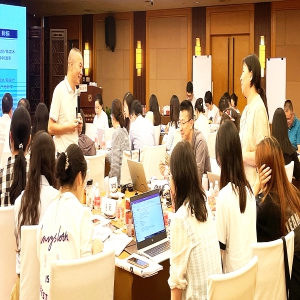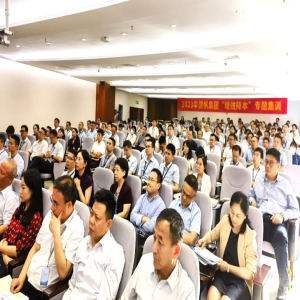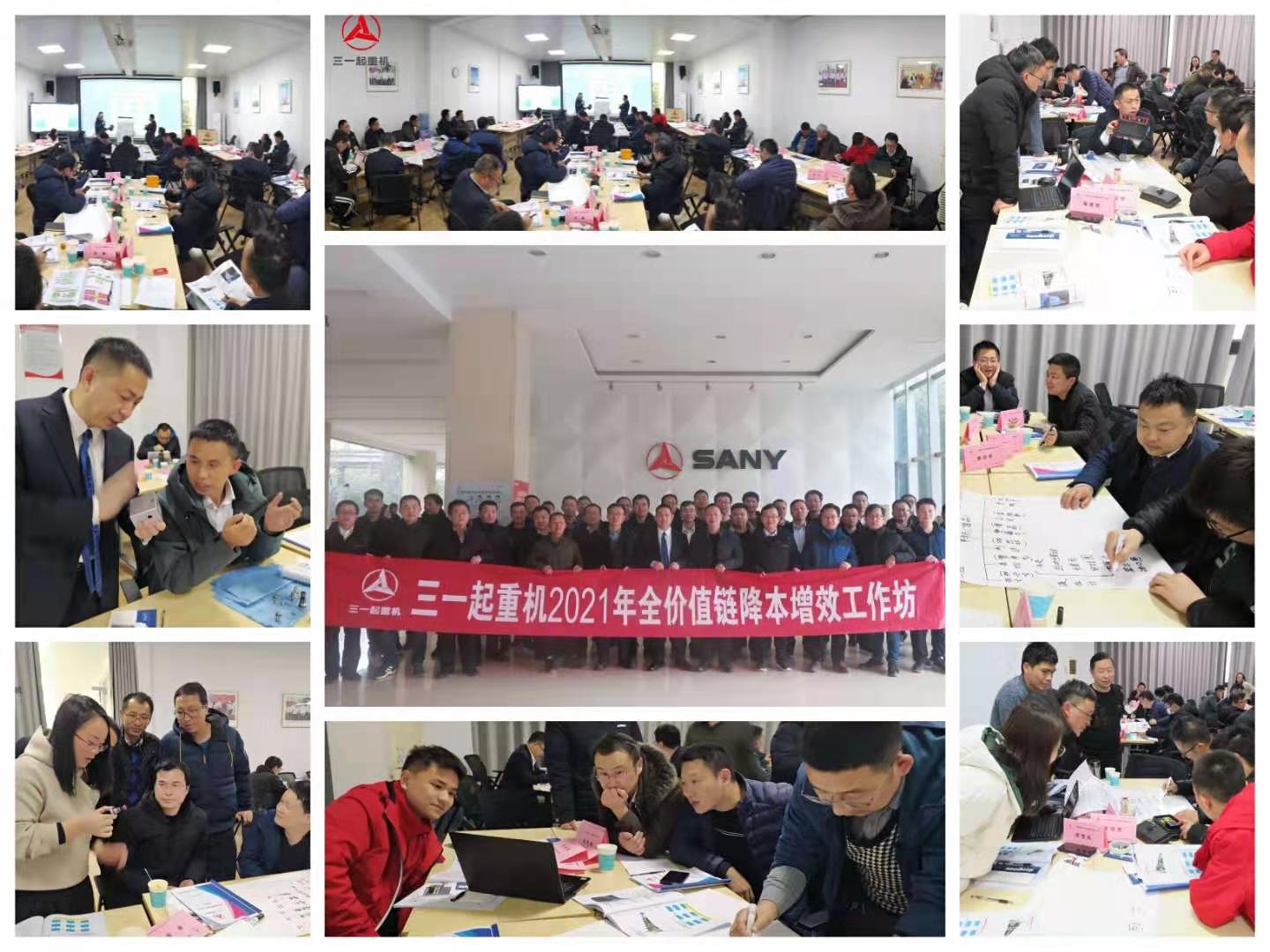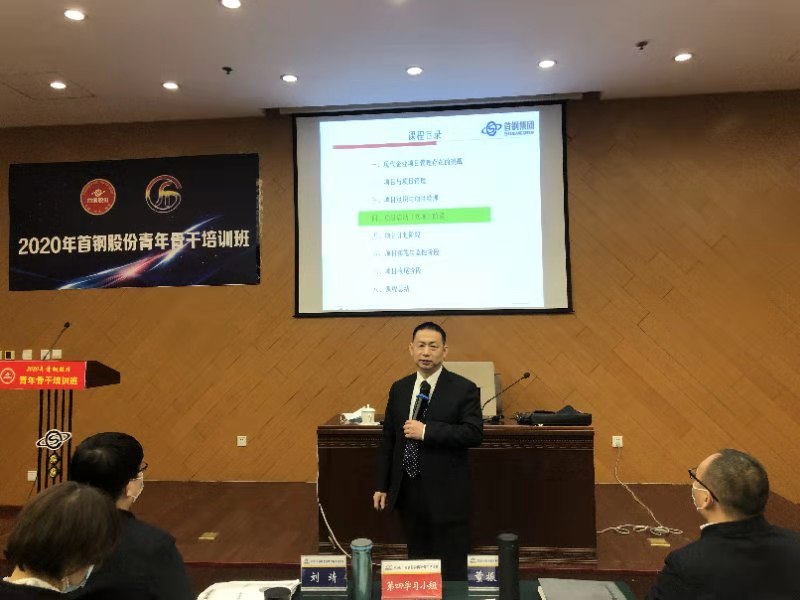公文写作
商务英文写作技巧 Business English Writing Skills
内训课程大纲
Why and What:
Is it “Ms. Lady,” or “Dear Madam,”; Is it “ I would appreciate it if …” or “I would appreciate
if...” ; Is it “ We cannot do anything about your problem”; or “Unfortunately we are unable to help
you on this occasion.”; is it “ I should be glad if you would, or “ Please”; Is it “The program gains
efficiency by eliminating the superfluous instructions” or “The program gains efficiency when you
eliminate the superfluous instructions?”
Every day, you may not be confident enough in writing perfect English documents and
sometimes make big or small mistakes. For examples: what you write may not be well
“mind-mapped” in that your “readers” can not accurately understand what you want to tell
them; what you write contains abundant words and phrases which make your documents
“clumsy” with unwanted “fat”; what you write is not in a professional or proper style with a clear
tone in that you have warned your” readers” that you are not professionally tuned.
Your English is already good enough, but you want to be in your element with skills to write
professional, effective, and impressive business English. Reaching such a level, you will be able to
communicate more effectively and your image reflected to your boss, colleagues and clients or
even to the public will be significantly improved. This is where this course will exactly take you to.
Course objectives:
After the program, participants will
ü Identify the weakest links in their business English Writing;
ü Apply 5 steps to successful writing;
ü Use the 4 point plan and 10-step methods to write highly effective English
documents;
ü Find out writing professional Business English is no longer a too hard skill;
ü Save time and dramatically increase their working efficiency and the chance of being promoted.
Course Contents:
Session 1.Critical thinking about Business English Writing:
1.1. When you need to use pen or when you need to use mouth?-the advantage and
disadvantage in using written communication to convey your ideas and information;
1.2. What are the benchmarks for good business English writing, and how it will benefit you?
1.3. What are the critical challenges for Chinese to write culturally-wise business English?
Brainstorm
Session 2.5 Steps to successful writing:
Step 1. Preparation;
2.1. Establish your Purpose;
2.1.1. What do you want your readers to know, to believe or to do when they have read your
documents?
2.1.2. The effective ways to establish your purpose;
2.2. Identify your audience or readers- Analyze your readers;
2.2.1 Determining your readers’ needs;
2.2.2 Do you write to an individual reader or a diverse audience?
2.2.3. How difficult will it be for your reader to understand your documents?
2.2.4. Will the reader just file away your document or will he post your documents on the wall
such as a public notice after he reads it?
Step 2. Research:
2.5. Brainstorm to determine what you already know;
2.6. Conduct research;
2.7. Selecting facts and sourcing what you need;
2.8. Avoid plagiarism.
Step 3. Structuring:
2.9. Methods of development;
2.9.1. Inductive and Deductive Methods;
2.9.2. Chronological method;
2.9.3. Comparisons method;
2.9.4. Definition method;
2.10. Using mind-map to structure your ideas, facts and information.
Case Studies and Exercises
Step 4.Writing-Dos and Don’ts for good Business Writing:
2.11. Remember your ABC;
2.12. Be courteous and considerate;
2.13. Use appropriate tone;
2.14. Writing naturally and sincerely;
2.15. Apply KISS principle;
2.16. Don't use “ancient” terminology;
2.17. Don't miss essential details;
2.18. Don't to be inconsistent;
2.19. Don't use passive voices but active voices;
2.20. Compose CLEAR communications.
Case Studies and Exercises
Step 5.Editing/ revision:
2.21. Unity and coherence;
2.22. Clarity;
2.23. Ethics;
2.24. Grammar;
2.25. Mechanics and Punctuation.
Case Studies and Exercises
Section 3. Email and business letter writing skills:
3.1. How to start or end a business letter or Email ?
3.2. How to write a business letter ?
3.3. The weakest links in your Email;
3.4. How can you make your Email work for you?
3.5. Netiquette.
Case Studies and Exercises
Is it “Ms. Lady,” or “Dear Madam,”; Is it “ I would appreciate it if …” or “I would appreciate
if...” ; Is it “ We cannot do anything about your problem”; or “Unfortunately we are unable to help
you on this occasion.”; is it “ I should be glad if you would, or “ Please”; Is it “The program gains
efficiency by eliminating the superfluous instructions” or “The program gains efficiency when you
eliminate the superfluous instructions?”
Every day, you may not be confident enough in writing perfect English documents and
sometimes make big or small mistakes. For examples: what you write may not be well
“mind-mapped” in that your “readers” can not accurately understand what you want to tell
them; what you write contains abundant words and phrases which make your documents
“clumsy” with unwanted “fat”; what you write is not in a professional or proper style with a clear
tone in that you have warned your” readers” that you are not professionally tuned.
Your English is already good enough, but you want to be in your element with skills to write
professional, effective, and impressive business English. Reaching such a level, you will be able to
communicate more effectively and your image reflected to your boss, colleagues and clients or
even to the public will be significantly improved. This is where this course will exactly take you to.
Course objectives:
After the program, participants will
ü Identify the weakest links in their business English Writing;
ü Apply 5 steps to successful writing;
ü Use the 4 point plan and 10-step methods to write highly effective English
documents;
ü Find out writing professional Business English is no longer a too hard skill;
ü Save time and dramatically increase their working efficiency and the chance of being promoted.
Course Contents:
Session 1.Critical thinking about Business English Writing:
1.1. When you need to use pen or when you need to use mouth?-the advantage and
disadvantage in using written communication to convey your ideas and information;
1.2. What are the benchmarks for good business English writing, and how it will benefit you?
1.3. What are the critical challenges for Chinese to write culturally-wise business English?
Brainstorm
Session 2.5 Steps to successful writing:
Step 1. Preparation;
2.1. Establish your Purpose;
2.1.1. What do you want your readers to know, to believe or to do when they have read your
documents?
2.1.2. The effective ways to establish your purpose;
2.2. Identify your audience or readers- Analyze your readers;
2.2.1 Determining your readers’ needs;
2.2.2 Do you write to an individual reader or a diverse audience?
2.2.3. How difficult will it be for your reader to understand your documents?
2.2.4. Will the reader just file away your document or will he post your documents on the wall
such as a public notice after he reads it?
Step 2. Research:
2.5. Brainstorm to determine what you already know;
2.6. Conduct research;
2.7. Selecting facts and sourcing what you need;
2.8. Avoid plagiarism.
Step 3. Structuring:
2.9. Methods of development;
2.9.1. Inductive and Deductive Methods;
2.9.2. Chronological method;
2.9.3. Comparisons method;
2.9.4. Definition method;
2.10. Using mind-map to structure your ideas, facts and information.
Case Studies and Exercises
Step 4.Writing-Dos and Don’ts for good Business Writing:
2.11. Remember your ABC;
2.12. Be courteous and considerate;
2.13. Use appropriate tone;
2.14. Writing naturally and sincerely;
2.15. Apply KISS principle;
2.16. Don't use “ancient” terminology;
2.17. Don't miss essential details;
2.18. Don't to be inconsistent;
2.19. Don't use passive voices but active voices;
2.20. Compose CLEAR communications.
Case Studies and Exercises
Step 5.Editing/ revision:
2.21. Unity and coherence;
2.22. Clarity;
2.23. Ethics;
2.24. Grammar;
2.25. Mechanics and Punctuation.
Case Studies and Exercises
Section 3. Email and business letter writing skills:
3.1. How to start or end a business letter or Email ?
3.2. How to write a business letter ?
3.3. The weakest links in your Email;
3.4. How can you make your Email work for you?
3.5. Netiquette.
Case Studies and Exercises
讲师 陈立文 介绍
国内领先跨文化培训、咨询专家、先驱、跨文化实践研究学者、墨尔本商学院跨文化特邀讲师、英国城市行业协会(City and Guilds)授证国际专业讲师、国家注册企业管理培训师、精通英文、双语授课。
陈老师是全球第二大业务流程外包商Wipro BPO 长期签约软技能独家培训师,目前为其中国员工定期讲授“压力管理”、“态度管理”、“工作场所开心管理/Fish Philosophy” 等课程。曾为《中国日报》英文版和《上海人才市场报》专栏特约撰稿人。现任多家世界500强企业和大型跨国公司企业培训及跨文化管理咨询顾问。陈老师精通英文,能用英汉双语流利授课。
教育背景:陈老师毕业于西安交通大学,对个体心理学、社会心理学、行为科学、跨文化管理、哲学、商务管理等学科有广泛深入的研究和实战应用。
资源合作伙伴:陈老师长年和来自美国、奥地利、澳大利亚、瑞典等国家的跨文化专家学者及软技能培训咨询专家开展工作交流。拥有国际前沿跨文化研究成果及深厚的跨文化知识和丰富的实践经验,拥有跨文化管理领域国际领先的软技能知识和培训技巧。
社会经历:陈老师拥有 20多年企业管理和对外交流工作经验。曾在省政府部门从事合资项目的建设与协调工作;曾在国家大型一级企业从事外事及中外管理沟通协调工作;曾任伦敦工商会高级管理人员,从事业务与市场开发及客户服务和项目管理工作;曾任澳中文化交流中心高级管理人员;加中文化交流中心高级管理人员等职。陈老师现正致力于为世界500强企业和大型跨国公司提供培训和咨询服务,为世界企业了解中国,中国企业走向世界而奋斗!
智慧优势:陈老师对中国古代、现代文化及哲学,特别是《易经》有着广泛深入的研究;对西方哲学和西方思想史有全面透彻的研究;系统深刻地掌握了国际前沿跨文化理论和实践技能。陈老师具有广泛的心理学专业知识及应对情绪压力方面纵深的跨文化管理学、心理学、生理学等相关的文化底蕴和实践经验。
课程及授课特点:正如客户所反馈,陈老师的课程堪称是“中西合璧”的典范,课程融合深刻的理论分析、鲜活的实战案例、妙趣横生的思想论辩、大量生动的互动为一体,提供即学即用的实用技巧和工具。陈老师长年为世界 500强企业和大型跨国公司提供培训咨询服务,在实践中不断研究和锤炼,积累了卓越的演讲经验和培训技能,授课风格稳健大气、热情洋溢。
上一篇:简报及呈现技巧
下一篇:企业内刊的编辑技巧特训营
培训现场
讲师培训公告
讲师管理文库
- 企业到公司化阶段后,老板要从关注事向关注人转变
- 某电信企业员工职业化项目纪实
- 某商业银行EVA考核模式设计项目纪实
- 管理企业不难---管理思想摘录
- 成功者离不开第4个医生
- OD落伍了,OD2.0来了
- 中层的责任与担当
- 如何做好员工管理
- 赢在协同:如何高效联动与无缝对接
- 问题解决力 ——问题的分析与解决






